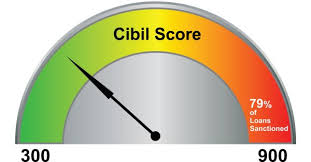
Women Borrowers form 28% of India’s Retail Credit Consumer Base, show TransUnion CIBIL Insights.Latest insights from TransUnion CIBIL indicate sustained growth in the participation of women borrowers in India’s retail credit market, which now includes more than 47 million active women borrowers. Over the last six years, the share of women borrowers grew to ~28% in Sep-20, up from ~23% in Sep-14, indicating increasing inclusion of women in India’s credit market.
This represents a CAGR of ~21%. Male borrowers have increased at a CAGR of ~16% during the same period. In terms of sanctioned loan amount, women borrowers account for INR 15.1 lakh crores of retail loans, which has also grown at 12% CAGR over the last six years.
Rising credit consciousness amongst women borrowers – a promising indicator of financial literacy
Along with the growth in the participation of women in India’s credit market, awareness and credit consciousness has also improved with self-monitoring women consumers growing by 71% between 2018 and 2020. This is more than six times the growth rate of self-monitoring male consumers over the same period.
“With improved levels of education and employment of women across our country, their credit consciousness has also grown. This is corroborated by the fact that we have seen a significant surge in the number of women borrowers who monitor their own CIBIL score and report. This is a promising indicator of increased awareness and financial literacy amongst women,” said Sujata Ahlawat, Vice President and Head – DTC Interactive, TransUnion CIBIL.
This increased credit consciousness is also evident from the fact that women now constitute 12% of self-monitoring consumers, an increase from 10% in 2018. State-level data analysis indicates that the highest number of self-monitoring women consumers are from Maharashtra (18%) followed by Tamil Nadu (11%) and Karnataka (10%).
Credit consciousness fosters credit discipline and improves access to economic opportunities
Insights from CY 2020 show that within three months of checking their CIBIL score and report, 22% of self-monitoring women consumers opened at-least one loan account or credit card. Women consumers also show better credit history as compared to men, with the average CIBIL Score of an Indian woman consumer being 719 – higher than that of an average male consumer at 709. Additionally, 61% of the women consumers in TransUnion CIBIL’s consumer credit bureau have a CIBIL score greater than 720, whereas only 56% of male consumers have a CIBIL score greater than or equal to 720.
“Increased credit consciousness leads to a positive credit behavior as consumers understand the impact of their credit activity on their CIBIL score and access to finance. With many credit institutions now offering better terms and conditions and lower rates of interest for borrowers who have a higher CIBIL score, it is advantageous for consumers to monitor and maintain a healthy credit profile. TransUnion CIBIL is committed to ensuring that each consumer is reliably and safely represented in the marketplace so that they are able to access economic opportunities easily,” concludes Sujata.
CIBIL Score at www.cibil.com


